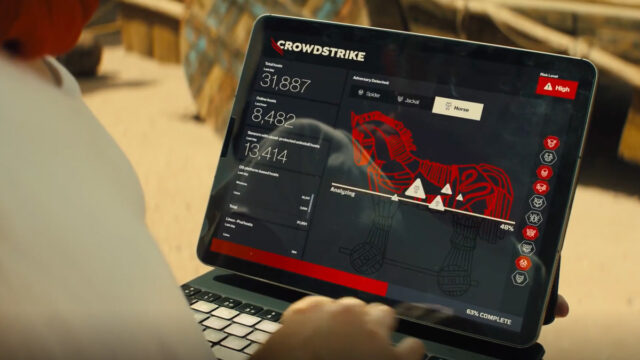With C-suite leaders from iconic brands keynoting sessions, leading workshops and attending networking events, Brandweek is the place to be for marketing innovation and problem-solving. Register to attend September 23–26 in Phoenix, Arizona.
It’s been a tough few days for CrowdStrike and its biggest customer brands. Microsoft, Delta and others were directly impacted by the global outage on July 18, with many citing the blue screen of death as a sign that Y2K was finally happening in 2024.
The incident unfolded when a faulty CrowdStrike update compromised 8.5 million Windows devices globally. Although Microsoft emphasized that this number was less than 1% of all Windows machines, the proportion bore significant consequences due to the kind of organizations CrowdStrike serves: airlines, hospitals, banks and telecommunications companies—hubs of critical infrastructure.
The financial repercussions for CrowdStrike were immediate and severe: a 22% plunge in stock value, erasing nearly $16 billion from the company’s market capitalization. The ripple effect of this financial hit was felt across sectors, prompting concerns about the robustness of digital infrastructures and the legal landscapes governing such large-scale failures.
Brands like Delta and Microsoft faced backlash for their communication (or lack thereof). But the CrowdStrike team, despite the consequences that impacted stocks and brand perception, gave us all a lesson in crisis communications. What made some brand communications hit while others missed?
Brand missteps and consequential chaos
Delta Airlines emerged as a key brand for negative sentiment as the carrier struggled with extensive flight cancellations and delays. U.S. Secretary of Transportation Pete Buttigieg had to remind Delta about the laws that safeguard airline customers, highlighting the volatility and public dissatisfaction during the ordeal.
Delta was criticized for its lack of immediate and transparent communication. Passengers across various airports were left in limbo, evidenced by countless social media posts capturing scenes of exasperation and hours-long waits. Industry experts have since argued that Delta’s handling could have been markedly improved by proactively managing and distributing more accurate information and reassurances through various channels to maintain customer trust and mitigate frustration.
For many travelers, their frustration over missed honeymoons and family get-togethers was only made worse by feeling like they were abandoned by gate agents and staff at the airports.


